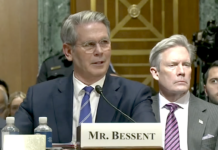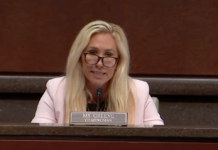
A Centers for Disease Control and Prevention doctor says the nation is experiencing a “distressing trend” with COVID-19 cases increasing in nearly 75% of the country.
Deputy Director for Infectious Diseases Dr. Jay Butler stressed Wednesday the importance of people following public health recommendations after a decline in reported cases in August is now going in the wrong direction.
“Unfortunately, we are seeing a distressing trend here in the United States,” he told reporters on a call. He said the surge is likely tied to cooler fall temperatures, adding, “smaller, more intimate gatherings of family, friends and neighbors may be driving transmission as well, especially as they move indoors.”
Butler’s comments came during an update on the pandemic at the center’s Atlanta headquarters where officials outlined worrisome numbers and plans for the vaccine’s so-called Operation Warp Speed rollout.
In the U.S., there have been 8.1 million confirmed COVID-19 cases and more than 220,000 deaths. In Georgia, the state public health department reported 341,00 COVID-19 infections and 7,674 deaths from the disease as of Wednesday afternoon.
More hotspots are popping up across the nation and Georgia’s new cases increased by 5% last week.
“I recognize that we are all getting tired of the impact that COVID-19 has had on our lives, that we get tired of wearing masks, but it continues be as important as it’s ever been,” Butler said. “And I would say it’s more important than ever, as we move into the fall season.”
Health officials on Wednesday warned Americans that we’re heading into a time of the year when the arrival of flu season, colder weather, and family gatherings around the holidays increases the virus’s likelihood of spreading.
U.S. Department of Health and Human Services Secretary Alex Azar said he remains optimistic the nation will turn a corner if a vaccine becomes available in a limited capacity by the end of the year. A vaccine should be ready for widespread distribution by April, he said.
There’s a multi-step process involving clinical testing and other standards that must be followed before safely deploying vaccines, Azar said.

“The vaccine work that we’re doing the American people should feel very reassured by the process,” he said.
Azar also brushed aside criticism from Emory University’s Dean of Public Health that his agency’s meddling undermines the CDC and concerns from Butler about the Trump administration rushing to reopen places of worship and other venues where large crowds congregate.
As with any reopening during the pandemic, the public is asked to wear masks and practice social distancing, whether it’s at a political rally, church or any other setting.
“The CDC plays a very important, vital role, but in a pandemic of this scope, size and magnitude it plays a role, not just the (only) role,” Azar said.
Butler said Georgia submitted a plan Friday to distribute vaccines that’s under review by the CDC.
“It’s important to recognize that these plans are flexible because things may change as we learn more about which vaccines become available in what amounts, and when,” he said.
The CDC latest guidelines also give an updated “close contact” definition, saying a series of short periods totaling at least 15 minutes is considered close contact, a shift from the previous guideline that said the interactions must last longer than 15 consecutive minutes within 24 hours.
The guidelines will cover students and staff returning to classrooms, people returning to their workplace, and widens the scope of contact tracing performed by public health departments.
The CDC is making changes based on new data, said CDC Director Dr. Robert Redfield, who also said studies in progress could result in shortening the recommended quarantine period to less than 14 days.
“The CDC is a science-based, data-driven organization; we’re not an opinion organization,” Redfield said. “So if we get data that supports a change in our recommendations, then those recommendations will be changed.”
This article appears in partnership with Georgia Recorder







